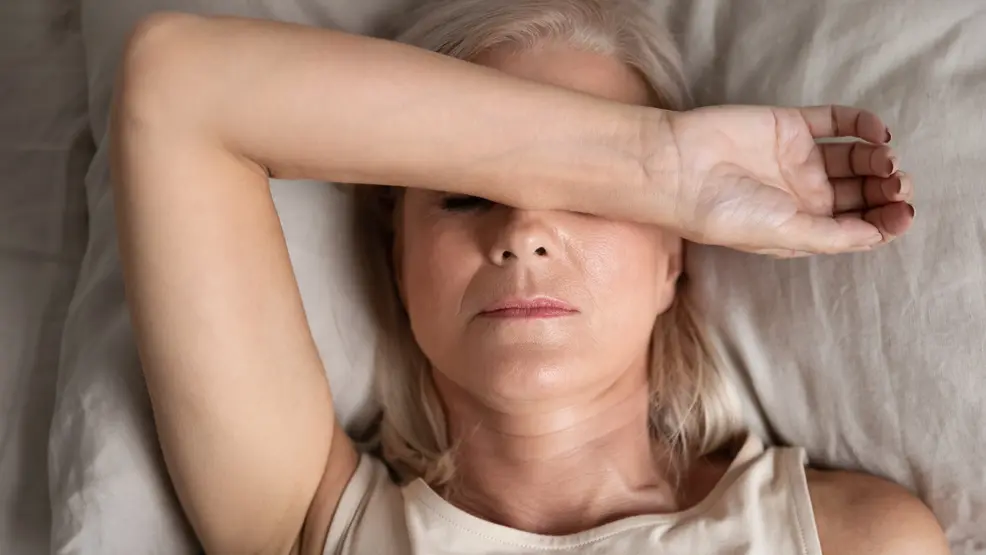Understanding the Overlap: Menopause, Hormonal Changes, and Hypoactive Sexual Desire Disorder (HSDD) in Women

SPONSORED
Menopause marks a pivotal shift in a woman’s life, often accompanied by a variety of physical and emotional changes. While hot flashes, night sweats, and mood swings are well-known symptoms, one of the less-discussed but equally impactful changes is the decline in sexual desire. This is where Hypoactive Sexual Desire Disorder (HSDD) enters the conversation. Characterized by a persistent lack of interest in sexual activity, HSDD is a recognized medical condition that can significantly impact a woman’s well-being. As highlighted in the Cureus article, "Understanding Hypoactive Sexual Desire Disorder (HSDD) in Women: Etiology, Diagnosis, and Treatment," hormonal fluctuations during menopause play a crucial role in the onset of HSDD. Shifts in estrogen and testosterone levels affect blood flow, sensitivity, and mood, all of which contribute to decreased libido. Yet, it’s essential to recognize that HSDD is not an inevitable consequence of menopause—it is a treatable condition. By raising awareness about the connection between menopause and HSDD, women can be empowered to seek treatment, explore lifestyle modifications, and access the support they need for optimal well-being and sexual health.
Understanding Menopause
Menopause typically occurs between the ages of 45 and 55, with the average onset around 51. It is defined as the time when a woman has not had a menstrual period for 12 consecutive months. This period is marked by changes in hormone levels, particularly estrogen and progesterone, leading to various physical and emotional symptoms.
Common symptoms of menopause include hot flashes, night sweats, mood swings, weight gain, and vaginal dryness. Each of these symptoms can significantly impact a woman's quality of life. However, one of the more subtle yet profound effects of menopause is HSDD, which often goes unrecognized and untreated.
The Link Between Menopause and HSDD
The hormonal fluctuations that occur during menopause can lead to a decreased libido for many women. Changes in estrogen levels can affect blood flow and sensitivity in the genital area, causing discomfort during sexual activity and leading to a decline in sexual desire. Additionally, psychological factors such as stress, anxiety, and body image issues can further contribute to HSDD.
It is essential to acknowledge that HSDD in women is not a natural part of aging or menopause. It is a medical condition that can be managed. Women experiencing a significant decrease in sexual desire should consult healthcare providers to explore options for treatment and support.
Strategies for Managing Menopause Symptoms and HSDD
Managing menopause and HSDD can feel challenging, but understanding your options can make a significant difference. With a mix of medical treatments, lifestyle changes, and emotional support, women can effectively navigate these changes and improve their quality of life. Here are some steps you can take:
1. Consult a Healthcare Professional: Seeking professional guidance is essential when managing menopause symptoms and HSDD. A healthcare provider can assess your medical history, symptoms, and lifestyle to provide personalized treatment options. They may recommend blood tests to evaluate hormone levels or discuss medication options, ensuring your care plan is tailored to your unique needs. This approach can help alleviate symptoms and address underlying concerns.
2. Hormone Replacement Therapy (HRT): Hormone Replacement Therapy is a common treatment for managing menopause symptoms such as hot flashes, night sweats, and mood swings. By supplementing the body with estrogen, progesterone, or both, HRT helps stabilize hormone levels and reduce discomfort. Healthcare providers often weigh the benefits against any potential risks, ensuring that this treatment aligns with your health profile. Many women experience significant improvements in their symptoms with HRT.
3. Lifestyle Modifications: Adopting a healthy lifestyle can significantly enhance physical and emotional well-being during menopause. Regular physical activity, such as walking, yoga, or strength training, boosts energy levels and reduces mood swings. A diet rich in whole foods, lean proteins, and healthy fats supports hormonal balance, while adequate hydration prevents fatigue and headaches. Stress management techniques like meditation, mindfulness, or deep-breathing exercises can further alleviate symptoms and promote emotional resilience.
4. Treatment Options for HSDD: For women experiencing Hypoactive Sexual Desire Disorder (HSDD), flibanserin like Addyi may be an option. This HSDD treatment can work for most women and works by _targeting brain chemicals linked to sexual desire. A healthcare provider can help determine if this treatment is appropriate for you.
5. Counseling and Support Groups: Emotional health is just as important as physical well-being during menopause. Therapy can provide a safe space to discuss concerns, process emotions, and develop coping strategies for challenges related to menopause and HSDD. Support groups offer opportunities to connect with others experiencing similar issues, fostering a sense of community and understanding. Many women find it empowering to share their stories and learn from the experiences of others.
6. Sexual Health Education: Gaining knowledge about sexual health and how menopause affects intimacy can empower women to navigate these changes confidently. Understanding one’s body and discussing concerns with a partner or healthcare provider can foster a more fulfilling and open approach to intimacy. Resources like books, workshops, or online forums on sexual wellness can provide valuable insights and support a positive perspective on sexual health during menopause.
Conclusion
Menopause is a significant transition in a woman’s life that can present various challenges, including HSDD. However, it is important to recognize that effective management strategies can lead to improved quality of life and sexual health. By consulting with healthcare professionals, exploring treatment options, and adopting a proactive approach to lifestyle changes, women can navigate this phase with confidence and vitality. Empowerment through education and support will enable women to embrace this new chapter while managing menopause symptoms effectively.
